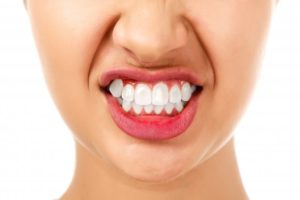
Recent research has demonstrated that it takes around two months to build a new habit, and you know how fast that little bit of time can fly by. That means that there could be hundreds of habits that you may have acquired throughout your life, some helpful and others not. When it comes to your oral health, one habit that definitely isn’t productive is teeth grinding (bruxism). Your family dentist in Williamstown is quite familiar with this issue and wants you to know that bruxism can cause serious problems for you in the long run. Continue reading to learn some of his strategies for overcoming it.
What Causes Bruxism?
Bruxism is the grinding of your teeth due to stress; however, it can also happen while you sleep, which may be reflective a sleep disorder. The latter is why you may wake up with a sore jaw or constant, dull headache some mornings.
The Dangers of Continued Teeth Grinding
The major issue with allowing yourself to continue with bruxism is that it can cause serious problems like loose teeth, worn down crowns, misaligned biting and chewing, changes in your facial structure and hearing loss.
5 Ways to Prevent Bruxism
Here are some ways to protect your oral health from the dangers of prolonged teeth grinding:
- Mouthguard – Your dentist can fabricate a custom mouthguard to serve as a cushion between your upper and lower teeth.
- Reduce Stress – A way to go straight to the source is to focus on reducing your stress. That could involve meditation, exercising or seeing a counselor.
- Avoid Certain Beverages – There are certain beverages that you may want to avoid like coffee, colas and teas because of their caffeine content, which can cause you to grind your teeth while you sleep. You also want to limit alcohol consumption before going to bed because it too can lead to the same issue.
- Retrain Yourself – Now that you’re aware of this habit, there are steps you can take to retrain yourself. When you notice yourself clenching your teeth, place your tongue between the upper and lower rows to help your jaw muscles relax. A final way to release tension in your jaw muscles is to place a warm cloth in front of your ear lobes.
- Continue to Visit Your Dentist – By maintaining semi-annual visits to your dentist, you will be able to prevent any worsening of your situation. He will thoroughly exam your teeth and will quickly notice the signs of any grinding. Your dentist can then work with you on finding the appropriate treatment method.
Just know that with the right expertise, effort and timely recognition, no problem is unfixable. Reach out to your dentist in Williamstown today to learn more about he offers nightguard and other solutions to help patients overcome bruxism while sleeping, and schedule an appointment to get the immediate help that you need.
About the Author
Dr. Wael M. Kassem received his undergraduate degree in biology from Rutgers University Camden and then went on to earn his dentistry degree from Temple University. A member of the New Jersey Dental Club, Dr. Kassem practices at iSmile Dental Arts and can be reached for more information through his website.




